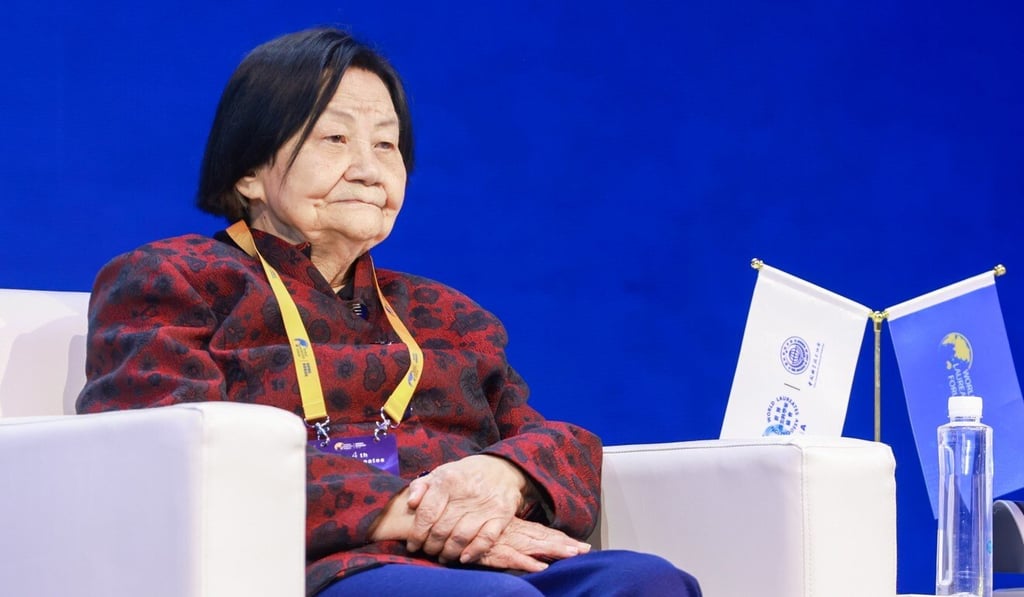Advertisement
Profile | Meet the scientist behind Beijing Time. She also has an asteroid named after her
- Ye Shuhua, 94, has devoted her life to astronomy, and wants women to fight for gender equality
- She led the Shanghai observatory and her work was important for China’s moon exploration programme
Reading Time:4 minutes
Why you can trust SCMP
1

Astronomer Ye Shuhua played an instrumental role in China’s space programme in the 20th century. But the well-known scientist, who is now 94 and still working, says she had to overcome restrictive gender stereotypes to do it.
“If you want to get something, you have to fight for it. You must show your ability,” Ye told the World Laureates Association’s SHE Forum in Shanghai last week.
“If we do better and try our best, then I think women’s positions will become more and more equal, or even higher,” she said. “We just want to have more equal opportunity.”
A video clip of the speech, given in English, has gone viral on Chinese social media, racking up nearly 703,000 likes so far and sparking discussion on gender equality.
Ye, who did not respond to an interview request, is one of China’s most celebrated figures in astronomy. She oversaw the development of the country’s universal time system and its use of low-frequency radio waves as a form of measurement, which laid the groundwork for the space programme. She represented China on an international astronomy body, and she even has an asteroid named after her.

Advertisement